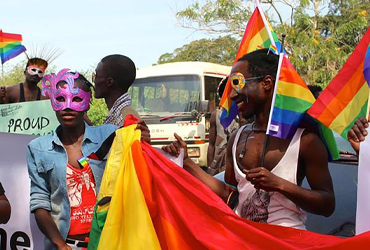Globally, Pride celebrations are a display of solidarity and protest against discrimination, state repression and criminalizing homosexuality.
June marks the Pride month for the lesbian, gay, bisexual, transgender, queer and intersex – LGBTQI+ community across the globe.
But amid the novel coronavirus disease – COVID-19, it was not possible or even acceptable for the community to come together as an act of solidarity, network and protest as has been the case for years. To make matter worse, the LGBTQI+ persons remained at the bottom of the priority list when it comes to access to proper health care.
The last one and half years of the pandemic have not only further laid bare the government’s negligence towards the basic healthcare needs of the marginalised LGBTQI+ community, but also the government’s plan to use the COVID-19 responses as an excuse to crack down on the LGBTQI+ community.

With no COVID-19 relief packages coming their way, the livelihood options of many LGBTQI+ persons have dried up during the pandemic.
Many LGBTIQ persons feel that since they are facing exclusion from the social fabric, a sudden inclusion during the pandemic is not likely. They would rather access special government services like getting vaccinated on a priority basis, but this doesn’t seem to be a possibility.
The LGBTQI+ community has not been spared from the immense domestic violence during the lockdown. People’s orientations are being exposed, and Intimate partner violence is on the rise, shelter homes have become a target of security operatives. Like everybody else, LGBTQI+ persons are facing layoffs at their workplaces.
Faced with all the above challenges, mental health challenges among LGBTQI+ persons can not be ruled out.
Pride Month activities would therefore have given the community a big push in advocating for some if not all of the above concerns. As usual, it would have been a perfect platform for human rights defenders and LGBTQI+ persons to build synergies and forge a way forward in a country where LGBTIQ persons are underserved and targeted.




